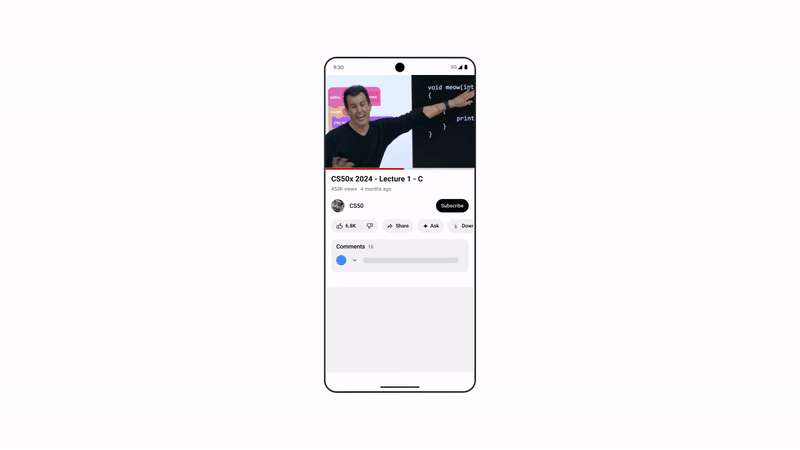LearnLM is Google's new family of AI models for education
Google says it has developed a new family of generative AI models "fine-tuned" for learning: LearnLM.
A collaboration between Google's DeepMind AI research division and Google Research, LearnLM models — built on top of Google's Gemini models — are designed to "conversationally" tutor students on a range of subjects, Google says.
LearnLM is already powering features across Google products, including in YouTube, Google's Gemini apps, Google Search and Google Classroom.
"LearnLM is grounded in educational research, making learning experiences more personal and engaging," James Manyika, SVP of research, technology and society at Google Research, said onstage during a keynote at Google's I/O 2024 developer conference on Tuesday.
Google says that, through a pilot program in Google Classroom, it's working with educators to see how LearnLM might simplify and improve the process of lesson planning. LearnLM could help teachers discover new ideas, content and activities, Google says, or find materials tailored to the needs of specific student cohorts.

Elsewhere, LearnLM is powering Circle to Search on Android, a feature that helps solve basic math and physics problems — and that soon will understand problems including symbolic formulas, diagrams and graphs. And LearnLM underpins a tool on YouTube (only on Android in the U.S. for now) that lets users watching academic videos ask clarifying questions, get explanations or take a quiz based on what they're watching.
In Google's Gemini apps in the coming months, LearnLM will let users create custom chatbots that can act as subject-matter experts. These chatbots will provide study guidance and practice activities like quizzes and games, and they'll respect each learner's individual preferences, Google says.
Google also plans to partner with organizations including Columbia Teachers College, Arizona State University, NYU Tisch and Khan Academy to see how LearnLM can be extended beyond its own products.
"Today marks a new chapter for learning and education at Google," Manyika said. "Generative AI is unlocking new ways for us to make the world's information and knowledge universally accessible and useful."
LearnLM is intriguing work, to be sure. But a technical paper detailing the model's development reveals that it suffers from some of the same problems as other generative AI models.
For example, LearnLM doesn't speak in a very "encouraging" tone and has trouble identifying when students answer practice questions correctly relative to one of the vanilla Gemini models (Gemini 1.0), although it's better at spotting mistakes. And it's not immune to hallucinations, or making up facts and figures in response to the prompts it's fed.
For these reasons, the co-authors of the paper caution against using LearnLM in apps "without further evaluation and analysis of the harms specific to [the apps]" — while in the same breath suggesting that Google performed such evaluations and analyses for its apps. For students' and educators' sakes, let's hope that's true.
We're launching an AI newsletter! Sign up here to start receiving it in your inboxes on June 5.


